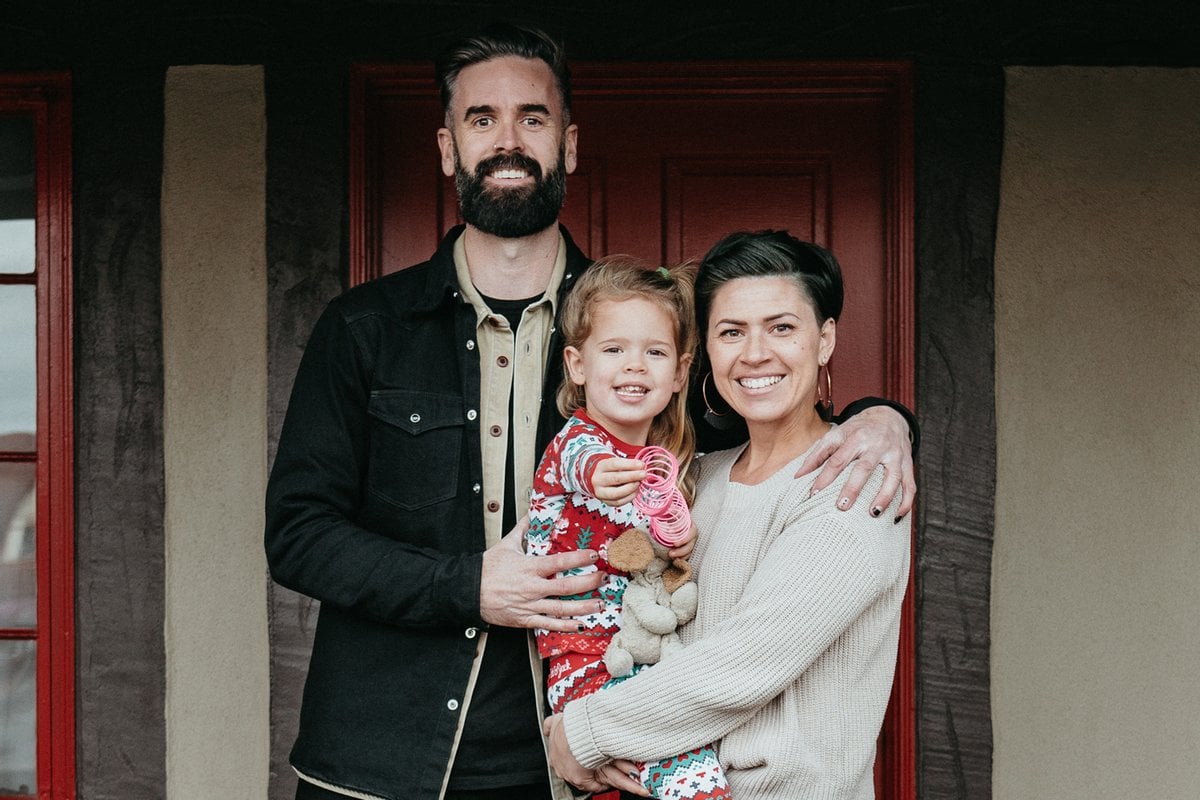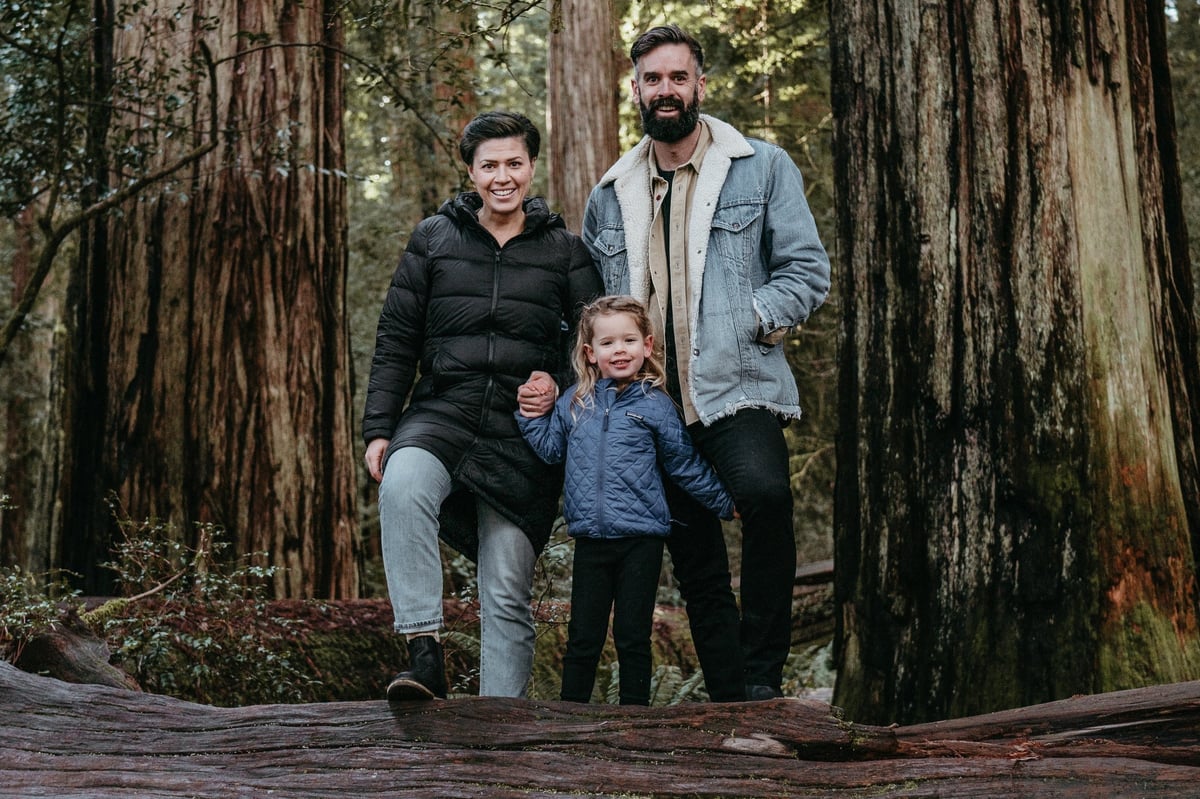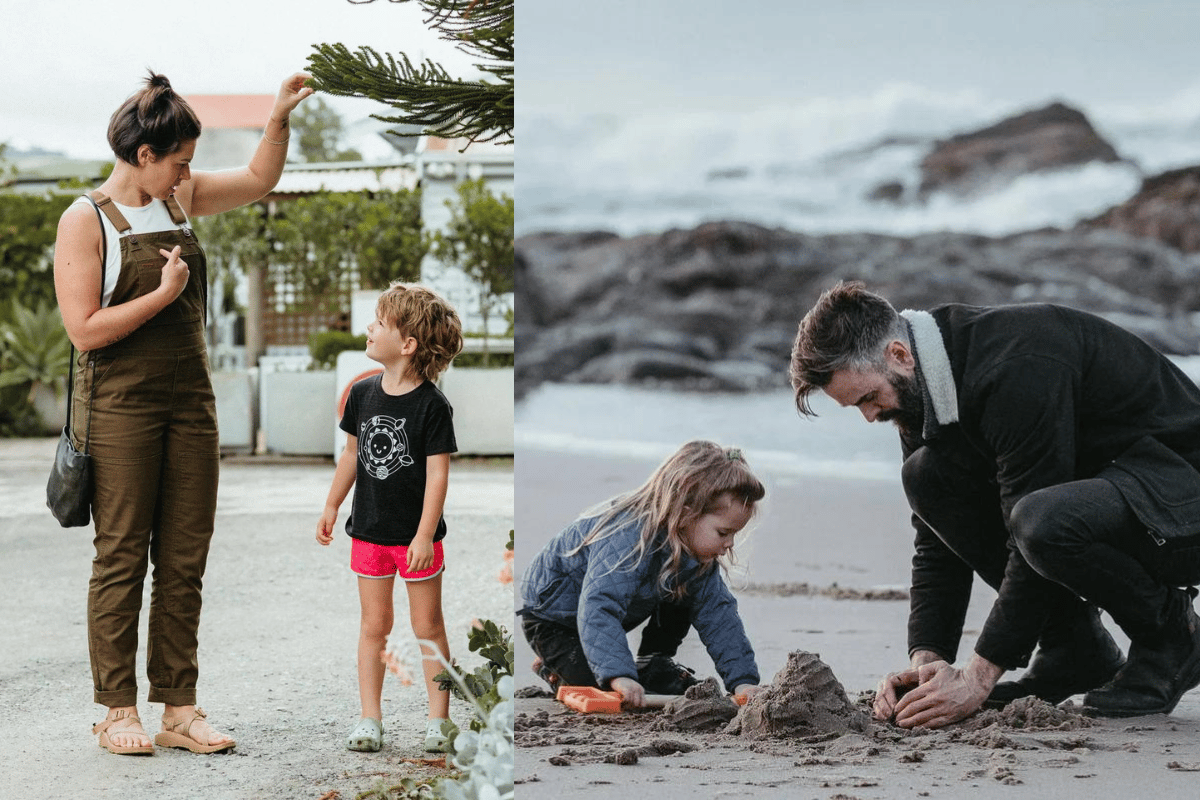
"This is child abuse."
"I get it, but I don't agree with it."
"When I have kids, I'm going to parent just like you."
Since the birth of my first child in 2016, thousands of strangers have let me know their feelings about the way I parent. I've received hundreds of messages and comments on Instagram and emails from people I don't know, telling me my child should be taken away from me.
Someone even mailed a handwritten letter to my workplace to inform me that I would be going to hell for how I'm raising my child.
Although I don't consider my parenting practices to be particularly newsworthy, my family has become a global curiosity, a target of outrage, and a source of inspiration. All because my partner and I didn't assign a gender to our kid. Allow me to explain...
Watch the trailer for this week's 60 Minutes, which features Dr Kyl Myer's story. Post continues below.
My partner, Brent, and I do something called 'gender creative parenting'.
For us, this means we didn't assign a binary girl-or-boy gender to our child, Zoomer, at birth; we don't disclose Zoomer’s genitals to people who don't need to know; we used the gender-neutral pronouns they/them/their for Zoomer until they could tell us what pronouns and labels fit best; and Zoomer learns about and explores gender without stereotypical expectations or restrictions.




Top Comments